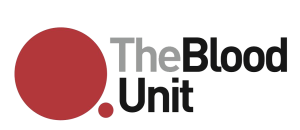
CAR-T cell therapy is gaining increasing momentum as a treatment for certain blood cancers such as childhood acute leukaemia and adult aggressive diffuse large B cell lymphoma. CAR-T are genetically modified T cells which are engineered to fight a patient’s own cancer by targeting key cancer cell surface markers, such as the CD19 marker on B lymphocytes – present in numerous lymphomas and leukaemia.
In the 2019 American Society of Clinical Oncology (ASCO) meeting in Chicago this year, the findings of a key study of KTE-X19 (Kite Pharma) – a CAR-T cell therapy aimed at the CD19 marker on leukaemia cells, were presented. Kite also make another CD19 CAR-T cell product Yescarta (axicabtagene ciloleucel) which has been approved in the US for treatment of adults with certain types of diffuse large B cell lymphoma.
This study (called the ZUMA-3 study) using KTE-X19 is for adults with relapsed or refractory Lymphoblastic Leukaemia. Of the 41 patients who were eligible for assessment after receiving this therapy, 68% had achieved a complete response. Even patients who received an intermediate dose of the modified T cells did well, with 84% of that group having a complete response, and holding that response for a median of 12.9 months.
Toxicities seen were the expected Cytokine Release Syndrome which occurred severely in 26% of patients, and neurologic toxicity occurred in 43% of patients. Whilst these toxicities can be daunting, this study also showed that revising the protocol to administer steroid treatment immediately once the patients showed even moderate neurological toxicity, reduced the likelihood of neurologic toxicity to 11%.
Dr Herbert's comments:
We learn from studies like these that CAR-T is effective in treating these diseases and just as importantly, we learn modifications of the protocols to reduce the toxicity of these important treatments.
CAR-T is yet to be approved in Australia for adult acute leukaemia but these results are very promising. Peter Mac are currently running CAR-T clinical trials in Diffuse Large B Cell Lymphoma and follicular lymphoma. Soon to come are clinical trials in Mantle Cell Lymphoma and (perhaps a little further off but hopefully within the next year) Multiple Myeloma. We also await with interest the Government’s decision on funding of CAR-T for standard of care for certain diseases in Australia. The key constraint is cost. A dose of CAR-T currently costs approximately AUD $500,000. These costs will reduce substantially once the scale of production increases and automated production is able to take over the very manual process of manufacturing these cells.
Outside of Peter Mac itself, Cabrini Haematology has been one of the first and busiest referrers of Haematology patients to receive CAR-T cells both on Clinical Trials as well as via a Government funded Medical Treatment Overseas Program. We have a strong Cellular Immunotherapy Linkage with Peter Mac, with two of our Doctors (Drs Herbert and Dickinson) being members of the CAR-T program at Peter Mac.
